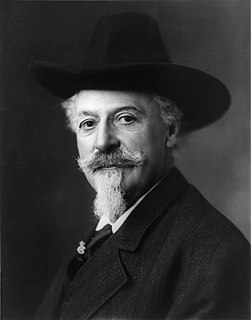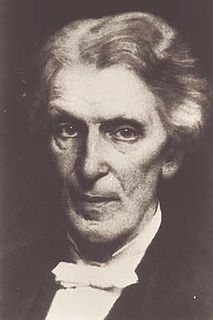A Quote by Charles Darwin
I am not very sceptical, — a frame of mind which I believe to be injurious to the progress of science. A good deal of scepticism in a scientific man is advisable to avoid much loss of time, but I have met with not a few men, who, I feel sure, have often thus been deterred from experiment or observations, which would have proved directly or indirectly serviceable .
Related Quotes
Genius and science have burst the limits of space, and few observations, explained by just reasoning, have unveiled the mechanism of the universe. Would it not also be glorious for man to burst the limits of time, and, by a few observations, to ascertain the history of this world, and the series of events which preceded the birth of the human race?
I believe, indeed, that overemphasis on the purely intellectual attitude, often directed solely to the practical and factual, in our education, has led directly to the impairment of ethical values. I am not thinking so much of the dangers with which technical progress has directly confronted mankind, as of the stifling of mutual human considerations by a 'matter-of-fact' habit of thought which has come to lie like a killing frost upon human relations. Without 'ethical culture' there is no salvation for humanity.
Ideals are very often formed in the effort to escape from the hard task of dealing with facts, which is the function of science and art. There is no process by which to reach an ideal. There are no tests by which to verify it. It is therefore impossible to frame a proposition about an ideal which can be proved or disproved. It follows that the use of ideals is to be strictly limited to proper cases, and that the attempt to use ideals in social discussion does not deserve serious consideration.
I am a man who believes with all fervor and intensity in moderate progress. Too often men who believe in moderation believe in it only moderately and tepidly and leave fervor to the extremists of the two sides - the extremists of reaction and the extremists of progress. Washington, Lincoln . . . are men who, to my mind, stand as the types of what wide, progressive leadership should be.
The history of science, like the history of all human ideas, is a history of irresponsible dreams, of obstinacy, and of error. But science is one of the very few human activities-perhaps the only one-in which errors are systematically criticized and fairly often, in time, corrected. This is why we can say that, in science, we often learn from our mistakes, and why we can speak clearly and sensibly about making progress there. In most other fields of human endeavour there is change, but rarely progress ... And in most fields we do not even know how to evaluate change.
I conceive that the leading characteristic of the nineteenth century has been the rapid growth of the scientific spirit, the consequent application of scientific methods of investigation to all the problems with which the human mind is occupied, and the correlative rejection of traditional beliefs which have proved their incompetence to bear such investigation.




































